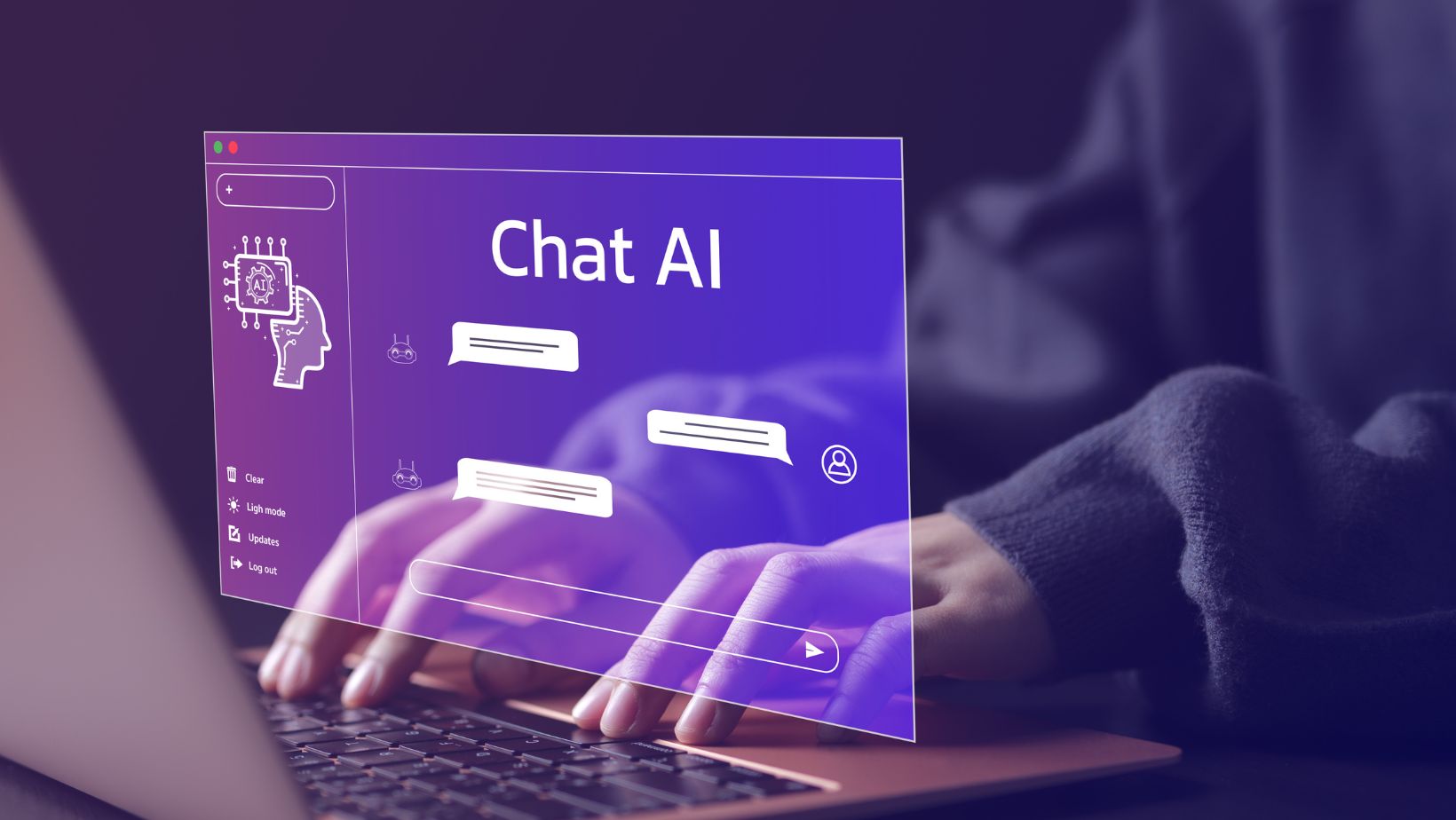Do you want to let your users search for the right info on your platform with a new powerful AI Chat Bot?
Users search on your website for answers. Google or Bing or whatever confuses them with a page of blue links.
They follow links, click more pages, get lost, and leave.
The Problem:
Keyword searches aren’t cutting it for users anymore. They don’t want homework. They want answers, and they want them now.
If you’re not using an AI-powered Search Bot, you’re bleeding customers to those who understand what’s happening.
It’s called an AI search engine. What you’re missing is a big opportunity. The industry is getting disrupted whether you know it or not. And the data is telling us.
What You’ll Discover:
- Why AI Search Engines Are Taking Over
- The User Experience Revolution
- How AI Search Boosts Satisfaction
- Making the Switch to AI-Powered Search
AI Search engines are BLOWING UP Your Competition
It’s happening, and it’s a revolution.
User satisfaction across AI search went to 81% in 2024 with estimates exceeding 85% late in 2025. Those numbers are consistent across platforms. Traditional search is NOT seeing those numbers.
No, what got me fired up when I saw the data…
92% of AI search users reported search results were “satisfactory” or “very satisfactory.” Can you imagine hearing a customer satisfaction survey like that? It’s unheard of.
Yet it’s happening across AI search platforms.
The reason: AI search engines like Deepseek and other AI providers understand intent. They’re moving beyond keywords.
Instead of a list of links to click and read and piece together, users get a direct answer right away. There’s a sea change in the user experience.
Traditional search is getting crushed. The AI search engine market stood at $43.6 billion in 2024 and is expected to grow to 62.2% of the total search market by 2030.
What that means is simple. In less than 6 years, more than half of all search volume will be powered by AI. The companies that move fast and adapt will take share from those who do not.
Let’s get into that below and unpack the WHAT, HOW, WHY, and WHEN of it all.
Unleash The User Experience With An AI Search Bot
Here’s something few people realize yet…
58.5% of U.S. Google searches now end in zero clicks. That means users are getting their answers directly from AI responses without clicking any links.
This is not an accidental bug.
Zero clicks are a feature, not a bug. The users who want answers don’t want to do the detective work of searching for results.

AI search engines are setting a new bar and raising user expectations.
The old way: Type query → browse results → click links → read pages → extract answers
The AI way: Type query → read answers
Boom. Done.
Users can start actual conversations with search engines. Ask follow-up questions. Drill deeper into topics. Clarify questions. Pivot to new topics.
With AI search, we’re on a radically different trajectory for user experience.
It’s not about a faster search or a better index. It’s about redefining the entire search paradigm.
Improve Satisfaction with a Search Bot
The satisfaction data is stunning:
Traditional search engines create frustration because they’re still digital librarians.
AI search engines are digital experts who understand your question, research the answer, and give you context with sources.
Users love AI search because:
- They get instant answers without doing research
- They can ask questions in conversational language
- They can ask follow-ups without repeating
- They get synthesized info from multiple sources
- They feel like they’re interacting with an expert
The bounce rate for AI search is 35% lower than for traditional search. If users can get their answers easily and immediately, they stick around.
Whereas with traditional search, users bounce around the results as they try to cobble together an answer from bits and pieces scattered across many pages.
The HOW to SWITCH to an AI Search Bot
Listen up…
AI Overviews already appear for 13% of all searches, which grew by 72% just in ONE month.
This is huge and coming to every industry across every industry.
Companies adopting AI Search early are already winning.
- Increased satisfaction
- Lower bounce rates
- More engaged users
- Higher retention
- Build trust and authority
BUT here’s the thing…
AI search does NOT require a complete rebuild of your search infrastructure overnight.
You can implement it in stages. Test AI solutions for specific use cases and user struggles.
Focus on areas where users repeatedly have the same questions, like support or FAQs.
Steps for Implementation:
- Identify your highest-frequency user queries.
- Experiment with AI search solutions for those queries.
- Track user satisfaction and engagement.
- Scale what works across more queries.
Don’t get left behind. The AI search industry is accelerating rapidly, and early movers will gain a significant advantage.
The leaders of the AI search revolution are already defining the new standards.
A Search Implementation Reality Check
Hear me out on this…
AI search is not just a tech problem. It’s a user experience problem.
The mistake many companies make is assuming AI is just a flashy, high-tech version of traditional search.
AI search is NOT a gimmick.
It’s a user-first design problem. You’re not training users to search better. You’re building a better search.
Users shouldn’t have to hunt or adapt to your search. Your search should hunt for them.
Your AI search should:
- Accept natural language queries flawlessly
- Remember the context from earlier in the conversation
- Give comprehensive yet concise answers
- Include references/sources
- Let users naturally ask follow-ups
Done right, AI search can be transformative for user experience.
Done poorly, it’s just another source of customer frustration that pushes people away.
The companies that are crushing this are the ones that understand this reality. The rest are struggling to find their way.
Bottom Line
AI search engines are blowing up and transforming user expectations.
The data is in. Satisfaction is spiking. Engagement is going up. The market is shifting to AI.
The decision:
- Adapt NOW and win the transformation.
- Adapt late and struggle to catch up.
- Ignore and get destroyed.
AI search is the future and it’s here now. The question is not if it will disrupt your industry. It’s who will be the leader and who will be the follower.
Successful companies are on board. They’re embracing AI search, testing it, and learning what works for their users.
The time to get started is yesterday. The time after that is right now.
Your users are already using AI search. They are training their brains on new ways to get information. They are learning new ways to search.
The companies that deliver an AI experience that your users expect will win. Period.
Wait and your competitors are taking away your share.

